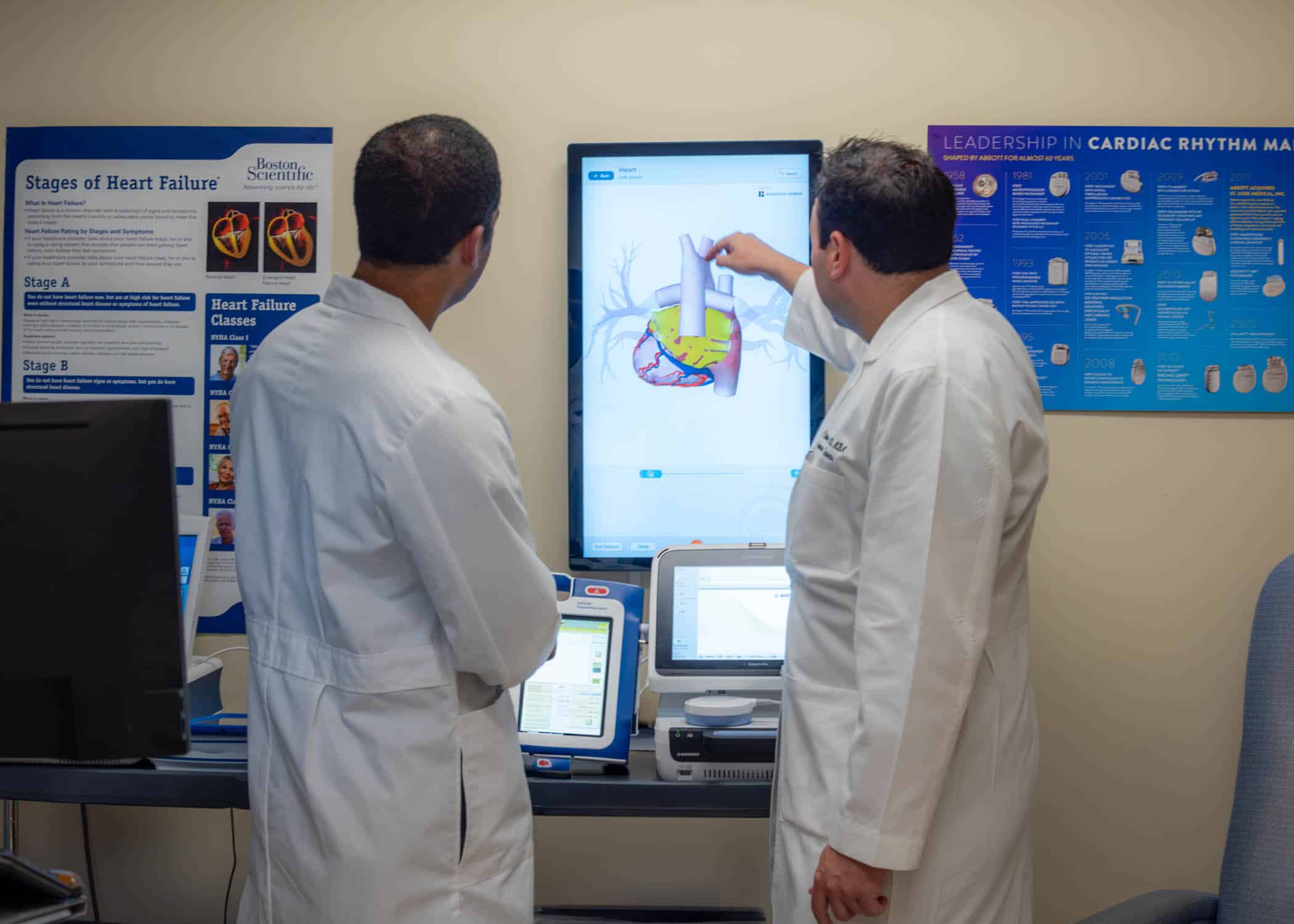Greenville, N.C. – Dr. Ghanshyam Shantha, cardiac electrophysiologist at ECU Health, recently performed the first procedure at ECU Health Medical Center with a new and innovative device that treats atrial fibrillation (AFib), or an irregular heartbeat – the FARAPULSE™ Pulsed Field Ablation (PFA) System. The FARAPULSE™ PFA is a catheter device that uses electrical fields to target specific tissue areas within the heart that causes an irregular heart rhythm that significantly decrease quality of life and carries the risk of embolic stroke.
“I’m incredibly proud of our electrophysiology team at ECU Health for delivering innovative solutions like FARAPULSE that are making a real difference in the lives of patients here in eastern North Carolina, where many struggle with chronic conditions like heart disease, diabetes and hypertension,” said Dr. John Catanzaro, John “Jack” Rose Distinguished Professor and chief of the Division of Cardiology at the Brody School of Medicine at East Carolina University, and director of the East Carolina Heart Institute at ECU Health Medical Center.

“AFib patients face a significantly higher risk of stroke, heart failure and other serious complications. Our team’s dedication to improving the well-being of our community is reflected in the cutting-edge treatments we’re providing to help reduce these risks and offer a better quality of life for our patients.”
More than 454,000 people are hospitalized with AFib each year in the United States, according to the Centers for Disease Control and Prevention. AFib is a common heart condition where the top chambers of the heart beat irregularly due to disorganized electrical signals in the heart. Paroxysmal AFib occurs when the irregular heartbeat does not happen all the time. Traditional treatments often use heat or cold to burn or freeze the malfunctioning heart cells to get the heartbeat back to normal. Thermal ablations pose a small risk of causing damage to other surrounding areas and complications. The newer ablation option, PFA, uses electrical pulses to target these cells more precisely, significantly reducing some of the complications that can come with thermal ablations.
“We’re thrilled to introduce FARAPULSE as a cutting-edge solution for patients with AFib in eastern North Carolina, where AFib rates are particularly high, and access to advanced care is essential,” said Jay Briley, president of ECU Health Medical Center. “Our teams are dedicated to delivering top-tier cardiac care, and their commitment to providing patients with the latest technology is inspiring. This innovative treatment is yet another step toward ensuring the best possible outcomes for our communities, right here at home.”
According to Boston Scientific, FARAPULSE benefits patients by reducing the risk of damage to surrounding anatomy, shorter procedure duration and better patient outcomes. In fact, more than 80 percent of patients with paroxysmal AFib had no returning symptoms within one year, and almost three-quarters of patients discontinued heart rhythm medications within one year.
ECU Health team members that were part of the new procedure include: Ghanshyam Shantha, MD, MPH; John Catanzaro, MD, MBA, Mark Dixon, RN, Dennis Wood, CVT, and Stephanie Clarke, CVT. As the leading academic health system in eastern North Carolina, ECU Health and the Brody School of Medicine perform nearly 450 ablations each year, ensuring patients can access the latest medical treatments close to home. By combining academic expertise with clinical care, ECU Health not only improve patient outcomes but also provides essential training for the next generation of health care professionals. ECU Health’s leadership in advancing cardiovascular treatments reinforces its mission to improve the health and well-being of eastern North Carolina. To learn more about ECU Health’s heart and vascular services, please visit ECUHealth.org/heart.